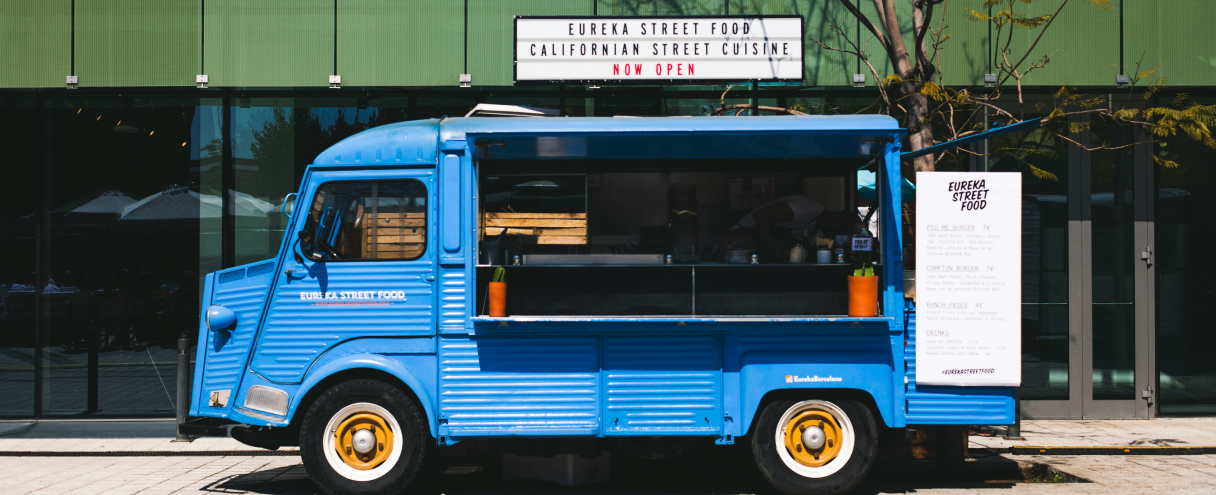There’s selling POS systems, and then there’s selling POS to franchises.
The latter isn’t just harder. It’s a different sport altogether.
When you’re targeting a single-location restaurant, you’re usually speaking directly to the owner. The process is fast, the objections are clear, and the buying decision is often emotional.
But when you’re figuring out how to sell POS systems to franchise chains, you’re entering a world of centralized decision-making, brand compliance, multi-tiered approval processes, and – yes – internal politics.
To help you break through the noise and win those high-value, high-volume deals, we’ve broken down a practical, field-tested POS sales strategy for franchises. Whether you're just getting into this segment or looking to sharpen your edge, this guide is for you.
A POS system for franchise businesses isn’t just a scaled-up cash register. It’s a technology platform that must:
- Support multi-location operations across regions
- Enforce brand consistency while allowing local variations
- Provide centralized reporting, promotions, and pricing updates
- Keep both corporate and individual franchisees happy
Franchisors want visibility and control. Franchisees want ease of use, flexible pricing, and reliable support.
You’re not just offering a tool. You’re offering alignment across the entire franchise network, and that’s what makes your value proposition so powerful (and complex).
Even experienced sales teams stumble when it comes to selling into franchise networks. Why? Because what works for independents often backfires in the franchise space.
Here are the most common mistakes to avoid:
- Targeting the wrong person
Reaching out to individual franchisees instead of franchisor decision-makers will rarely get you anywhere – or worse, it might alienate the brand. - Treating all franchisees the same
Some franchisees operate one location, others ten. Their pain points, budgets, and influence vary greatly. Don’t assume a single pitch works for all. - Overselling features, ignoring outcomes
Corporate buyers don’t care about "cool buttons." They care about brand compliance, cost reduction, and growth support. Speak their language. - Neglecting the rollout phase
Winning the deal is just the start. Many vendors lose momentum (and trust) when implementation is slow, support is scattered, or training is weak. - Failing to prepare for pilot resistance
Most franchise rollouts start with a pilot. If you treat the pilot like a casual test, without defined KPIs and success metrics, it may quietly die on the vine.
Avoid these traps, and you’re already ahead of 90% of your competitors.
Step 1: Map the Decision Landscape
Before you start pitching, you need to understand the franchise pos decision makers. And spoiler: it's rarely just one person.
Here’s who typically holds influence:
- Franchisor IT Team: Evaluates system architecture and data security.
- Director of Franchise Operations: Ensures system supports SOPs, workflows, and KPIs.
- Franchise Development or Procurement Lead: Owns the buying process.
- Franchisee Council or Regional Leaders: Can veto change, or help push it through.
- Store-Level Managers: Often the loudest critics if tech fails.
Each of these roles speaks a different language. Your pitch needs to adapt accordingly.
Tip: If you’re serious about selling POS to franchises, start by building a stakeholder map. Who cares about tech? Who signs off on contracts? Who will be using the system every day?
Step 2: Position Yourself Around Outcomes
Franchise buyers don’t want to hear about “features.” They want proof.
Instead of saying:
“We offer real-time inventory management”
Try saying: “We helped a 35-location chain reduce inventory waste by 22% in 3 months.”
When you understand how to sell pos solutions to franchise owners, it’s about painting the bigger picture:
- Less shrinkage
- Faster onboarding of new stores
- Real-time updates across locations
- Data visibility from HQ to front-of-house
Bundle that with a proven track record in multi-location rollouts, and you’re not just another POS vendor, you’re a franchise partner.
Step 3: Tread Carefully Around Legacy Systems
Most franchise chains already use a POS system, often one that’s expensive, outdated, and politically protected.
Your job isn’t to trash it. It’s to find the gaps and position your solution as a low-risk, high-reward upgrade.
Ask:
- Does their current system support mobile ordering or loyalty?
- Can it push menu changes across 100+ stores in under an hour?
- Are franchisees happy with support, billing, and training?
If the answer is “no”, there’s your opening.
Frame your offer as “complementary” or “modular”, even if your goal is eventual replacement.
Step 4: Highlight Franchise-Specific Features
If you're selling into this space, your product needs to look like a POS system for franchise operations.
Here’s what you must showcase:
- Centralized menu & price control
- Multi-location analytics dashboards
- Cloud-based access for regional managers
- Offline mode for store continuity
- Support for mobile/tablet terminals
- Multi-store loyalty programs
- Third-party delivery integration
These aren’t “nice-to-haves.” They’re table stakes.
If your system doesn’t have them, you’re not selling to franchises, you’re selling around them.
Step 5: Build for Scale (and Say So)
A major fear among franchise brands is this: they’ll adopt a POS system that works great at 10 locations… and collapses at 50.
That’s why scalability must be central to your pitch.
- Can your infrastructure handle 1,000+ terminals without latency?
- Can you push updates across stores in different countries with local taxes and languages?
- Do you support role-based access for area managers, franchisees, and corporate teams?
Even if the brand is small now, they want a solution that scales with them.
This is a major factor in the pos sales strategy for franchises, and one of the easiest ways to differentiate yourself.
Step 6: Equip for the Approval Gauntlet
Franchises don’t move fast. They move deliberately.
Be ready for:
- Security reviews
- Vendor registration portals
- Pilot programs and controlled rollouts
- Franchisee feedback loops
- Legal and finance reviews
To keep momentum, give them everything upfront:
- SLA documentation
- Integration map
- Case studies with KPIs
- Timeli
- Pricing transparency
Bonus: create a one-pager outlining “How We Support Franchise Rollouts”, it’ll show you’ve done this before.
Step 7: Activate the Franchisees
Even if you win corporate approval, you’ll still need buy-in at the store level, especially if the POS decision is optional or subsidized.
Here’s how to engage them:
- Show ROI at the location level (e.g., “This saved our other locations 3 hours/week in reporting time”)
- Offer easy onboarding (menu import, staff training, local support)
- Provide integration options with existing hardware
- Communicate in plain English, not IT jargon
Franchisees are skeptical of software rollouts. Your job is to turn them into advocates.
Step 8: Bundle Smart. Sell Simpler.
One of the best ways to close faster? Bundle everything.
Instead of selling POS, payment processing, KDS, and loyalty as separate line items, offer a unified package:
- One vendor
- One invoice
- One support team
That’s a huge relief for franchise buyers, who are already juggling multiple tech stacks.
And if you offer white-label capabilities, API access, or marketplace integrations? Lead with that. Show that you're not just a vendor, you're a platform.
Learning how to sell pos systems to franchise chains takes time. You’ll hit walls, lose deals to internal inertia, and hear “We’re reviewing vendors this quarter, maybe next year.”
But once you’re in, you’re in.
Franchises don’t switch POS every year. They roll it out across dozens – even hundreds – of stores. They train every new hire on it. They integrate loyalty, reporting, inventory, and more.
That means recurring revenue. Expansion opportunities. And deep stickiness.
So if you can survive the politics and master the process, selling POS to franchises might just be your biggest win yet.
KitchenHub helps POS resellers and tech providers deliver franchise-ready solutions with centralized control, white-label dashboards, and full API access. Check our demo (no calls, no commitments, no payment).




